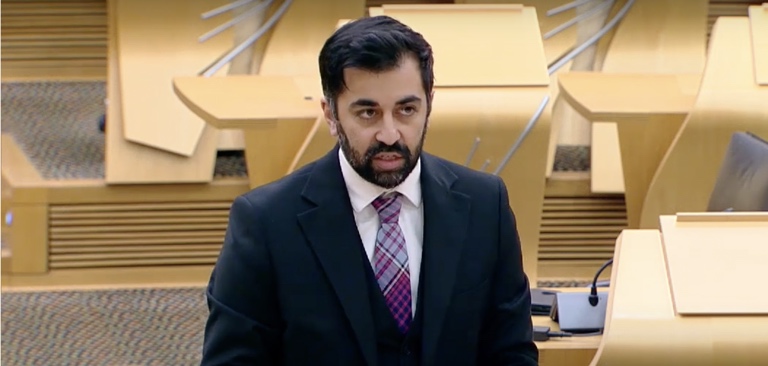A free speech amendment to Scotland’s controversial “hate crime” bill that would have allowed some “discussion or criticism of matters relating to transgender identity” has been withdrawn after members of the ruling Scottish National Party (SNP) threatened to resign in protest.
The bill is expected to pass and based on its current explanatory notes, it will criminalize showing “malice and ill-will towards a group of persons” based on the group being defined by reference to characteristics such as age, disability, race, religion, sexual orientation, transgender identity, and variations in sex characteristic.
People can be convicted of an offense under this bill if they’re deemed to have shown malice and ill-will towards these groups online via blogs, emails, podcasts, social media posts, websites, and more. Even people who forward or repeat offending material can be convicted.
Comedians, authors, and actors have pushed back against the bill and warned that it “risks a significant chilling effect on free expression.”
Under this amendment, which was proposed last week by Humza Yousaf, Scotland’s Cabinet Secretary for Justice, there would have been a freedom of expression protection where “behaviours and materials are not to be taken as threatening or abusive solely on the basis that it involves or includes discussion or criticism of matters relating to transgender identity.”
But after Yousaf proposed the amendment, “many younger and LGBT+ SNP members” threatened to resign their party membership. This prompted SNP Leader Nicola Sturgeon to step in and plead for them to remain party members.
The backlash ultimately resulted in Yousaf withdrawing his amendment and meeting with opposition parties in an attempt to write a new amendment that would give freedom of expression protection for all categories.
While some members of the SNP threatened to quit over the amendment, Scottish Conservative Party Member of the Scottish Parliament (MSP) Adam Tomkins criticized the negative reaction to the amendment.
“I have to say I have been disturbed by the reaction I have seen to what were modest, innocent amendments put down by the Cabinet Secretary and which I would have voted for,” Tomkins said. “But it’s clear that even the words the Cabinet Secretary’s carefully chosen in the amendment have caused fear, alarm and distress and I take that seriously, but I have to say I’m alarmed and distressed and perhaps even, if I’m honest, a little afraid of aspects of the reaction to it.”
Tomkins also criticized some Scottish politicians for making decisions about the types of speech that will be criminalized under this bill “behind closed doors” and added: “I’m less reassured now that we’re going to be able to fix this appropriately.”
Yousaf said he will now present a “a freedom of expression clause that will still be robust and provide that clarity, but will not leave people feeling like they’ve been targeted in any form” during stage three of the Bill (the final stage before it becomes law) when it’s debated in Parliament.













